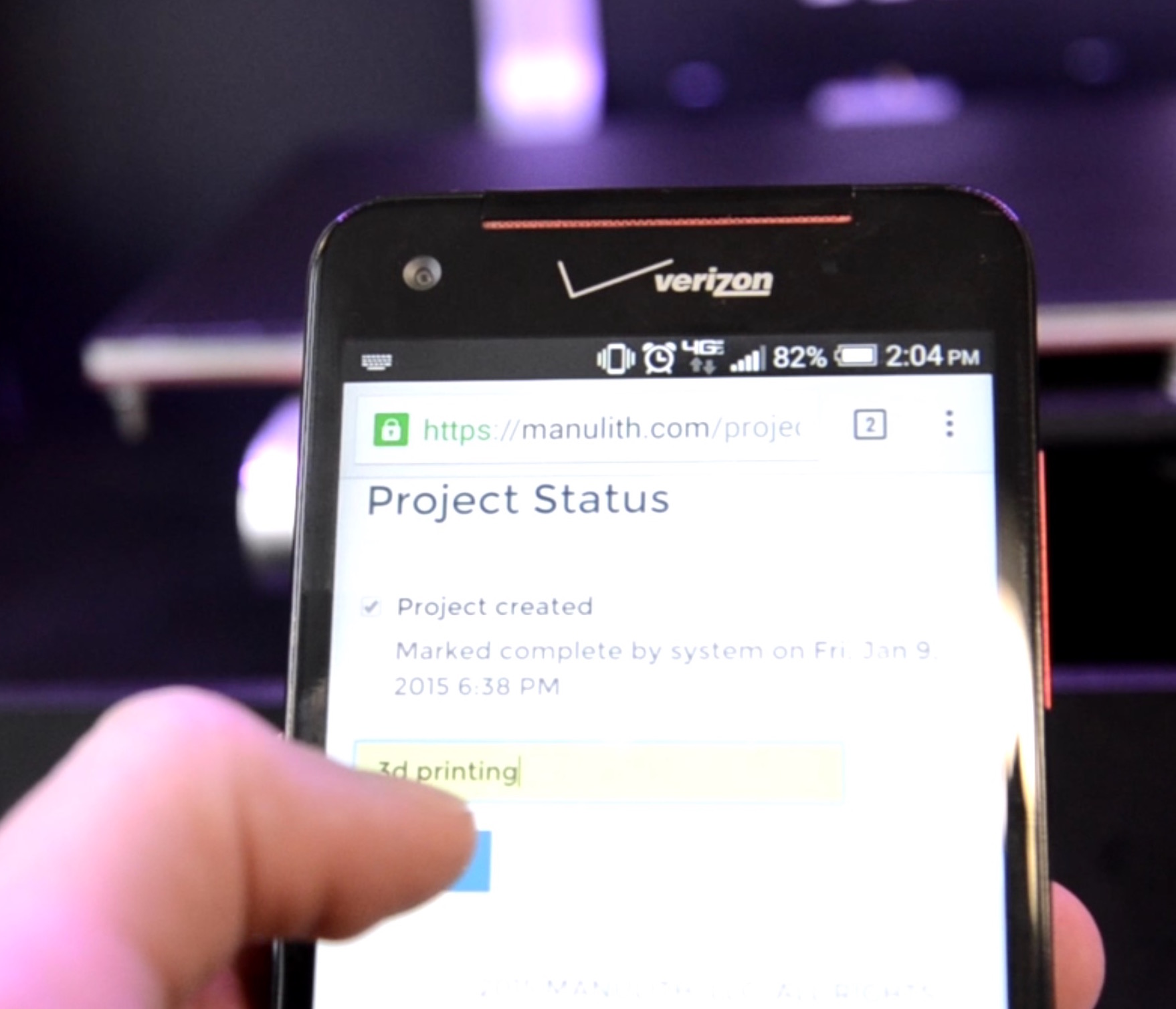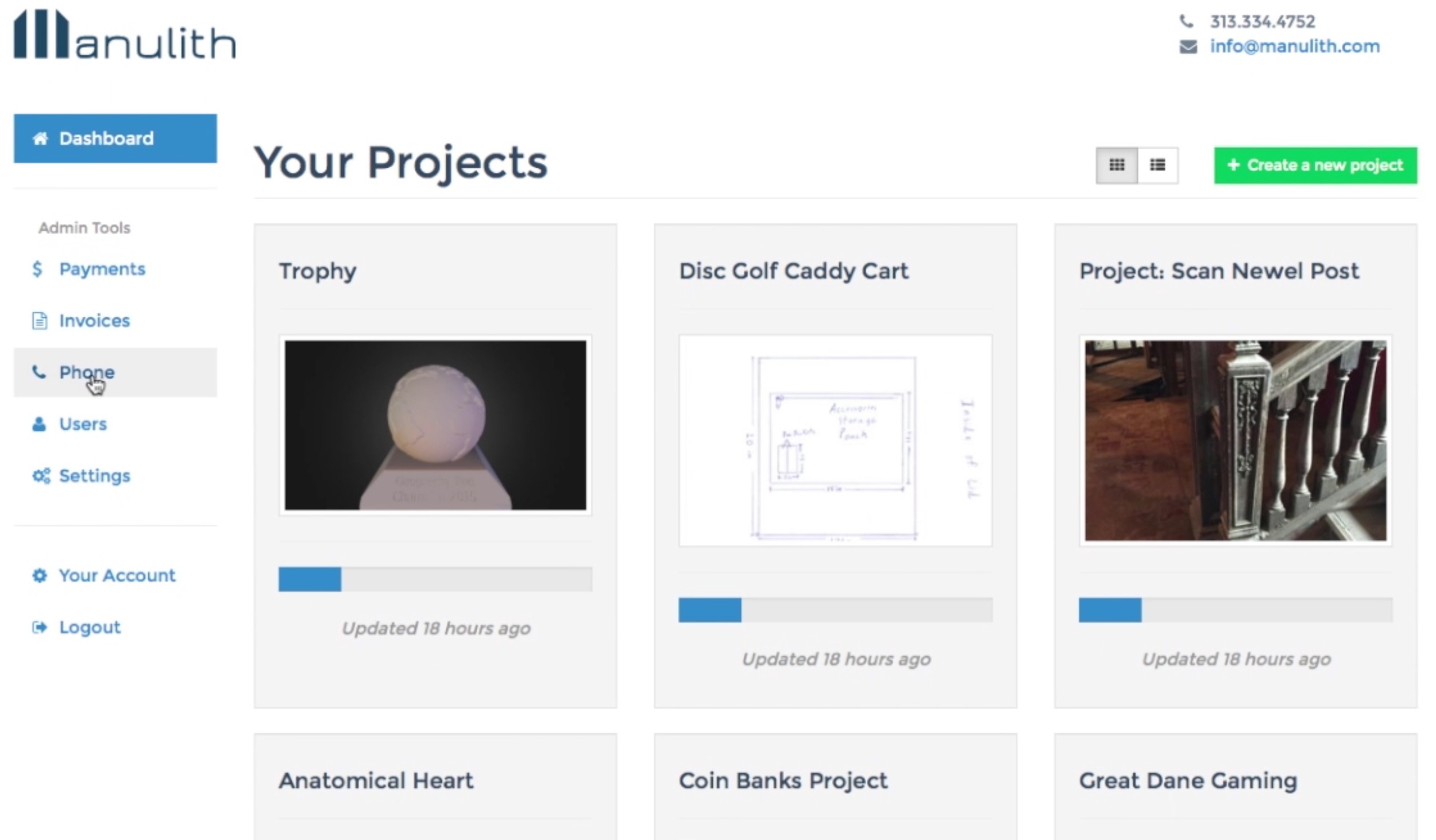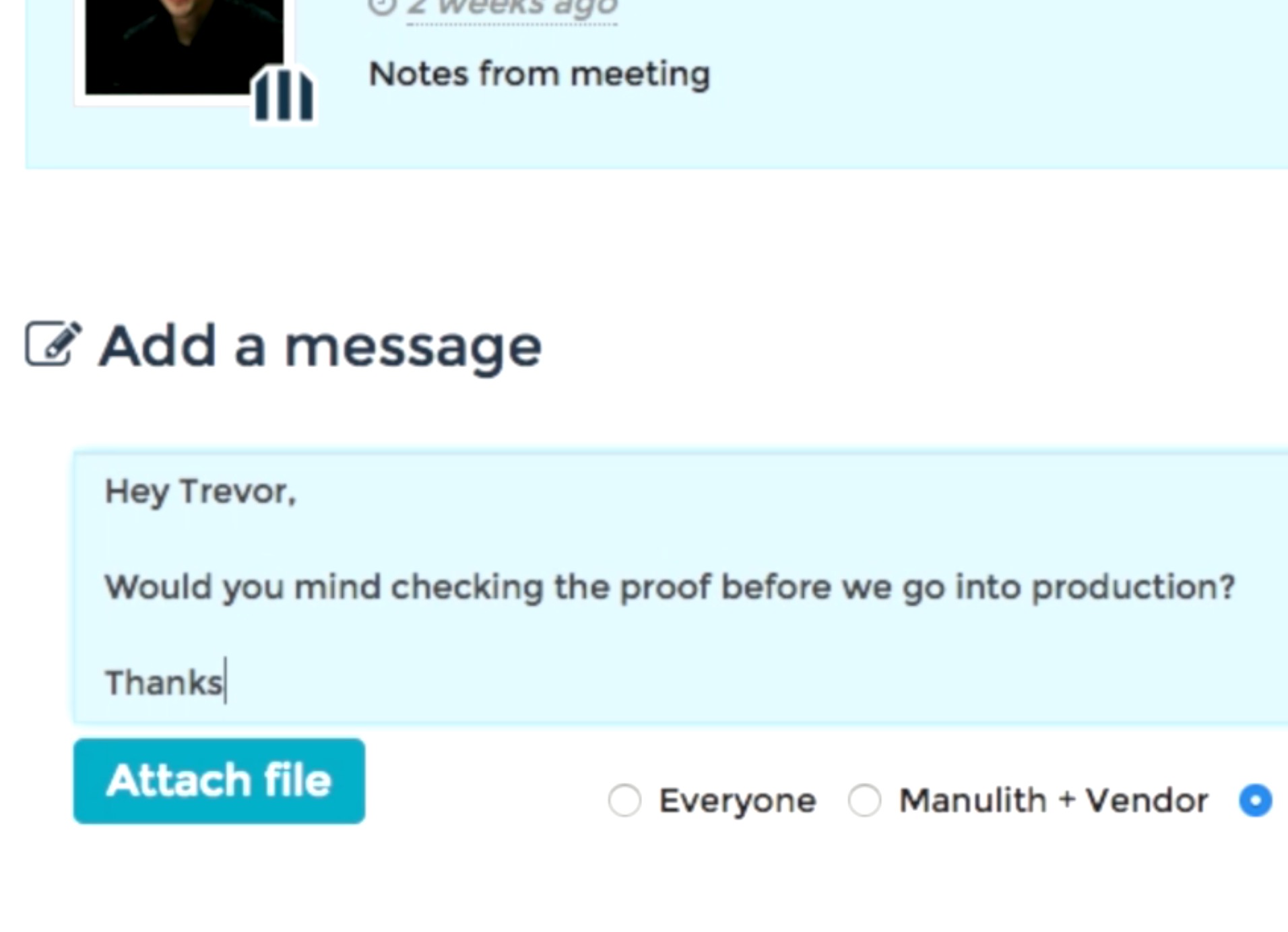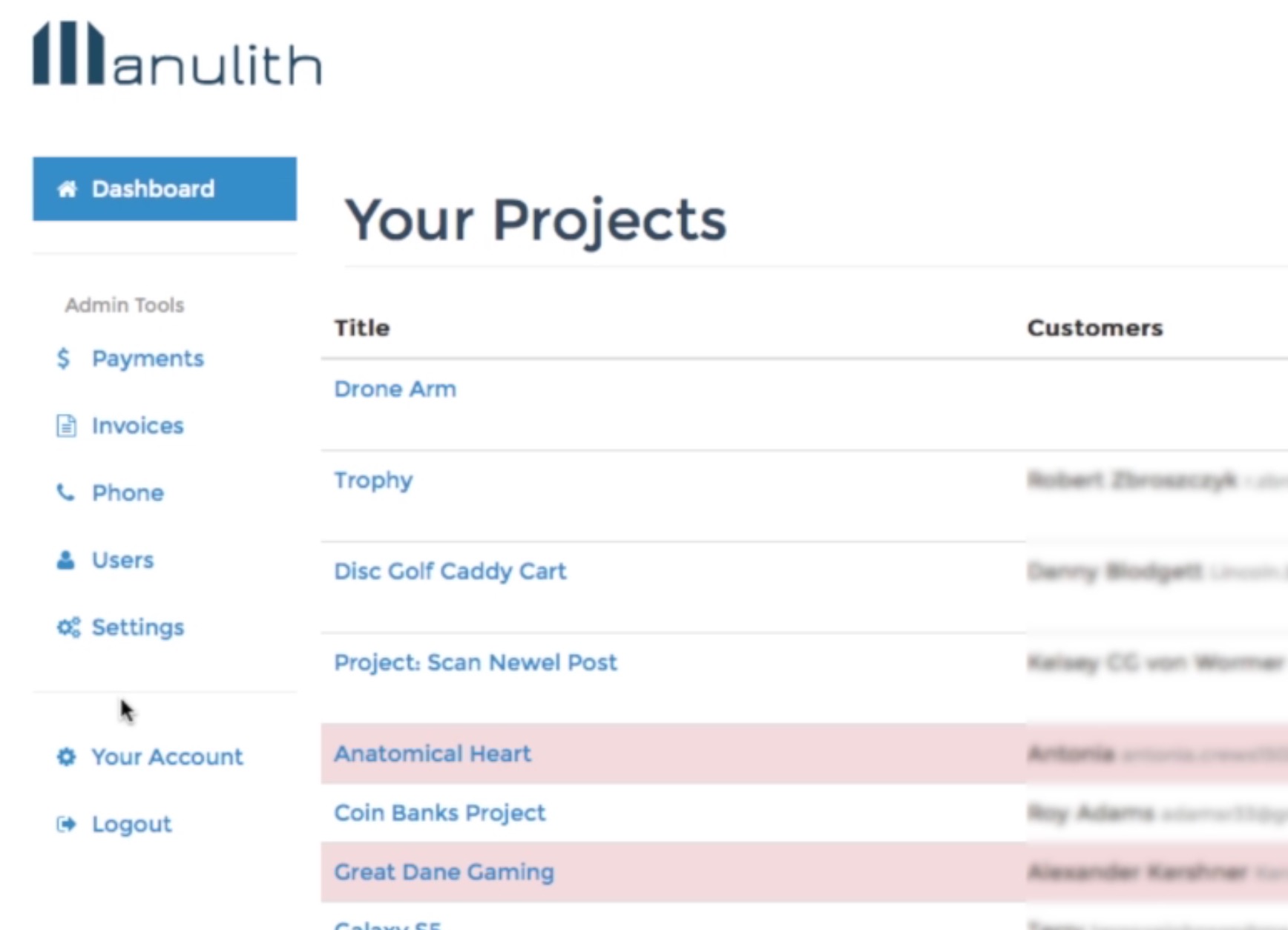
The world of 3D printing is a lot more than just the hardware; multiple supporting services have emerged to support the ecosystem, including one dedicated to professional makers: MakerOS.
It’s not slicing software; it’s not 3D model management. No, it’s more like “business management”, specifically for those making products for clients. The product originated as an in-house tool for Manulith to work with clients for their 3D printing business, but the company decided to market it as a product itself. Here’s how the startup company describes their product:
The operating system for your business. End-to-end business management platform for 3D printing service providers, contract manufacturers, and engineering/design firms.
Ok, but what does it actually DO? Essentially, it provides a way to perform all the common administrative tasks associated with running a business that makes things. With this service, you’ll be able to maintain and manage a list of clients, projects and all the activity associated with servicing them.
MakerOS is provided in two forms: a free tier and a premium subscription that’s targeted more at larger making operations. The free tier includes a near-complete list of functions:
- Project management system: create a “project” for a client and track all activity associated with it.
- Custom invoicing and billing: When projects are complete, you can electronically deliver invoices and be paid.
- Unlimited users and user management: Add as many clients and participants as you require.
- 3D file viewer (by etchfab): Assists when discussing preliminary designs with a client, as you can upload a design and have them view it. If a 3D file is detected, it is automatically available for instant 3D viewing.
- 3D file repair: Fix errant 3D models to ensure successful 3D printing.
- Mobile and multi-platform compatible: Access client and project information from anywhere, anytime in exactly the same way as the desktop version.
- White-label (customize to your company’s brand): When clients use the system to work with you, they will believe it’s actually your site, not MakerOS’s.
- Secure cloud storage: MakerOS directly integrates with most popular cloud services, including Google, Microsoft, Box, Dropbox, Evernote and even Facebook and Instagram. Any file type is supported.
- 3% + credit card processing per transaction: In reality, the free tier is not entirely free, as they’ll skim off 3% any charges you’re sending to your clients. But that’s easily accounted for by raising your rates by 3%!
- Integration with popular communication systems (Slack, Hipchat, SMS/MMS): Enables very easy communication between team members and even clients.
- Integration with third party website environments (Wix, Squarespace, Weebly): Enables your site to seamlessly include MakerOS content.
- Reports: You’re able to instantly determine the outstanding invoices, revenue stream and much more.
- Banking integration with Wave and Quickbooks: Ensures that your accounting system is up to date with all transactions.
- User Export to Mailchimp: Allows easy creation of mailing lists to keep clients up to date.
- Service agreements: Are customizable and by default included on each engagement.
This is huge amount of administrative front and back end technology useful for any making operation. However, there’s more! The premium version adds more specific functions for fees. There are three premium services available:
VOIP Integration: For USD$20 per month, MakerOS will provide a VOIP phone number that can automatically forward to other phones. This makes your business appear to have a dedicated line, instead of someone’s mobile phone – and leads are automatically captured when using this line!
Automatic Quoting: For USD$60 per month, MakerOS provides a way to build a custom 3D print quoting system that can automatically quote work from requestors.
Bundle: For USD$400 per month, you get the quoting engine and the VOIP line and you lose the 3% fee on transactions. According to MakerOS, this makes sense if you generate more than USD$5,000 per month in revenue.
The interface is well designed; this dashboard shows a peek at how it looks. You’ll see color-coded information to instantly show the status of projects, for example.
The company has just concluded its beta testing and is now gradually activating requests received earlier this year. Later this fall, they’ll open up the platform for all comers, after having worked the bugs out of the system during previous testing.
While the service definitely makes sense for larger making operations, such as CNC shops looking for a way to easily manage new 3D printing work, it may make even more sense for casual makers, who often have little or no administrative systems. The free tier could almost instantly transform your casual making business into what appears to be a very professional operation. In fact, testing by several companies using MakerOS has shown they do have increased sales and faster project workflow.
Via MakerOS




